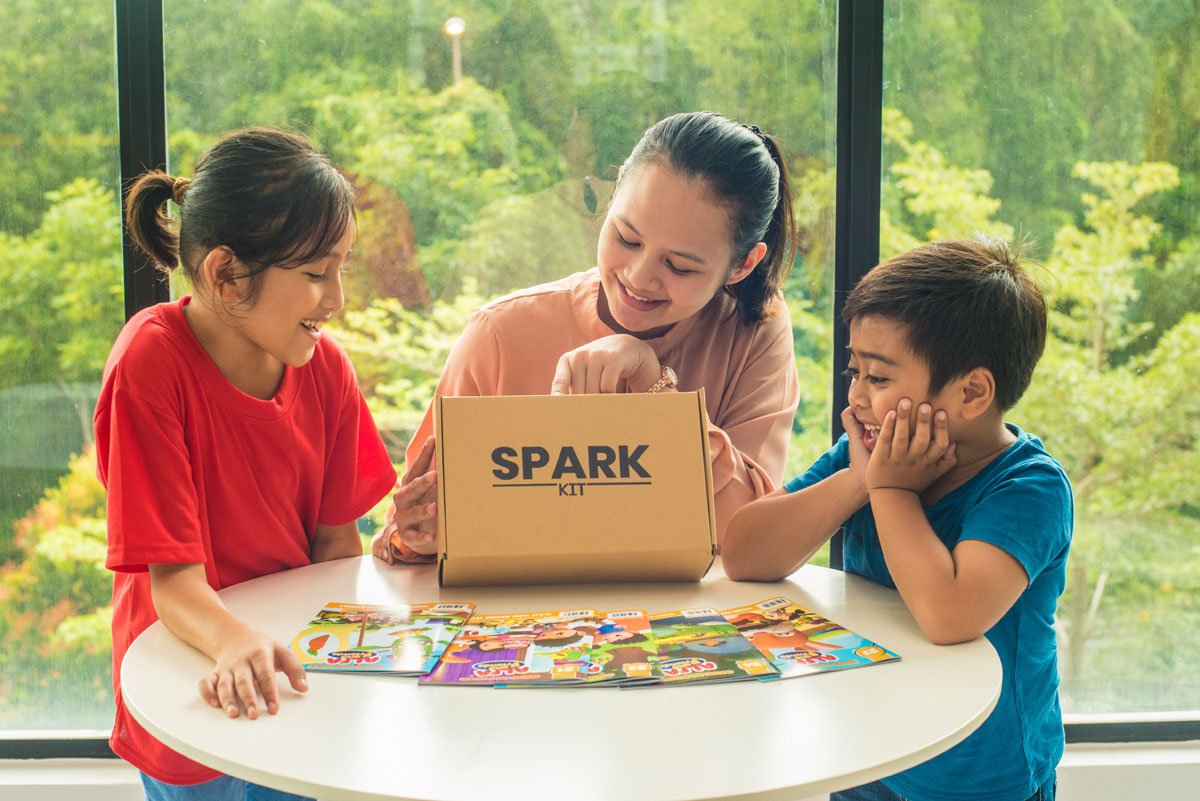Data shows that about one in five students miss three days of school every week. Absenteeism among school students can be attributed to a list of causes such as sickness, parents work schedule, travelling abroad, vacations, and many more.
For preschoolers, their attendance to school relies on their parents. Unfortunately, research has shown that there is still a lack of awareness on the importance of preschool education among parents. It has been observed by researchers that parents often place a bigger priority on their children’s higher education but completely disregard the significant role that preschool education has for their children’s early emotional, physical and social development.
Excellent quality of early education has been proven to be able to act as building blocks or foundation to a child’s learning development and growth, hence, influencing and determining the state of their future.
However, if absenteeism is attributed to inevitable circumstances such as natural disasters, compulsory closure of schools due to contagious disease cases such as the infamous Hand-Foot-Mouth Disease (HFMD) or lockdowns due to a virus outbreak. How do we, as teachers, play a role in ensuring the learning progress is not disrupted?
Undeniably, it is every teacher’s responsibility to provide the best quality education for the students. But, with absenteeism, it can be difficult to assess, track, and maintain student’s progress. There are many ways to overcome this issue,
1- Take-Home Classroom Assignments/Tasks

This is one of the many initiatives that a teacher can take in order to maintain preschool students’ learning despite being away from school. Plan weekly assignments or tasks for your students to bring home to ensure that the learning progress can take place at their homes.
The nature of these assignments or tasks can be in the form of worksheets, exercise books, or even weekly projects. As children often need one-to-one guidance, make sure the level of complexity or difficulty of the assignments, tasks, or projects are manageable to ease parents in providing assistance to their children.
2- Communicate with Parents

Set up a Whatsapp group, Skype call, or whatever means of communicating with parents to always stay up to date with students’ progress. If you have assigned your students with work to do at home, these communication lines will provide a platform for parents to approach you in case they are not able to help their children with completing the assigned work.
Apart from that, these communication lines will also build a strong relationship between you and your students’ parents, providing a more clear and transparent outlook and feedback of their child’s learning progress in and out of school.
3- Provide take-home learning kits

If the period of absence is scheduled to be a long one, why don’t you suggest to your school to purchase take-home learning kits which can be incorporated into your school curriculum as part of a take-home activity for the children.
One example of learning kits out there is the ALFA and Friends’ Spark Kit which is actually a Science experiment kit which comes with a Science, Technology, Engineering, Mathematics (STEM)-themed comic book for children to learn Science in theory and practice outside of the classroom. The Spark kit covers a wide range of Science topics such as gravity, electrostatic force, and my lungs; suitable for kindergarten students.
4- Varied Ways of Assessment

An experienced teacher will know that to assess a student’s progress, does not necessarily require the student’s to be in the classroom. You are able to keep track of a student’s progress by asking parents to share pictures or videos of their children completing an assigned task at home.
Pictures tell a thousand words, so, by providing guidelines to parents on how to document their children’s progress at home through pictures and videos, you will be able to form a sound assessment of their children which will ensure continuity in their learning progress.
In conclusion, you need to know that parents are not teachers. They may be able to provide some kind of assistance to their child’s learning but nevertheless, parents still require teacher’s expertise and skills to provide quality assistance for their children whenever learning has to take place outside of the classroom.
Let’s briefly explore the role of homework and how homework contributes to keeping your students on track when they can’t be physically present at school:
- Homework reinforces and helps your students to retain and practice whatever it is that has been taught at school
- Homework dismantles the habit of perceiving learning only has to take place within the classroom and inculcates a healthy habit of studying at home, broadening the parameters of where learning can take place
- Homework offers students an extension of whatever activity or project that they are currently working on at school, therefore, increasing student focus
In knowing all these alternatives to learning at school, teachers must be proactive to be able to maintain a steady momentum within each of their student’s learning progress inside and outside of the classroom.









